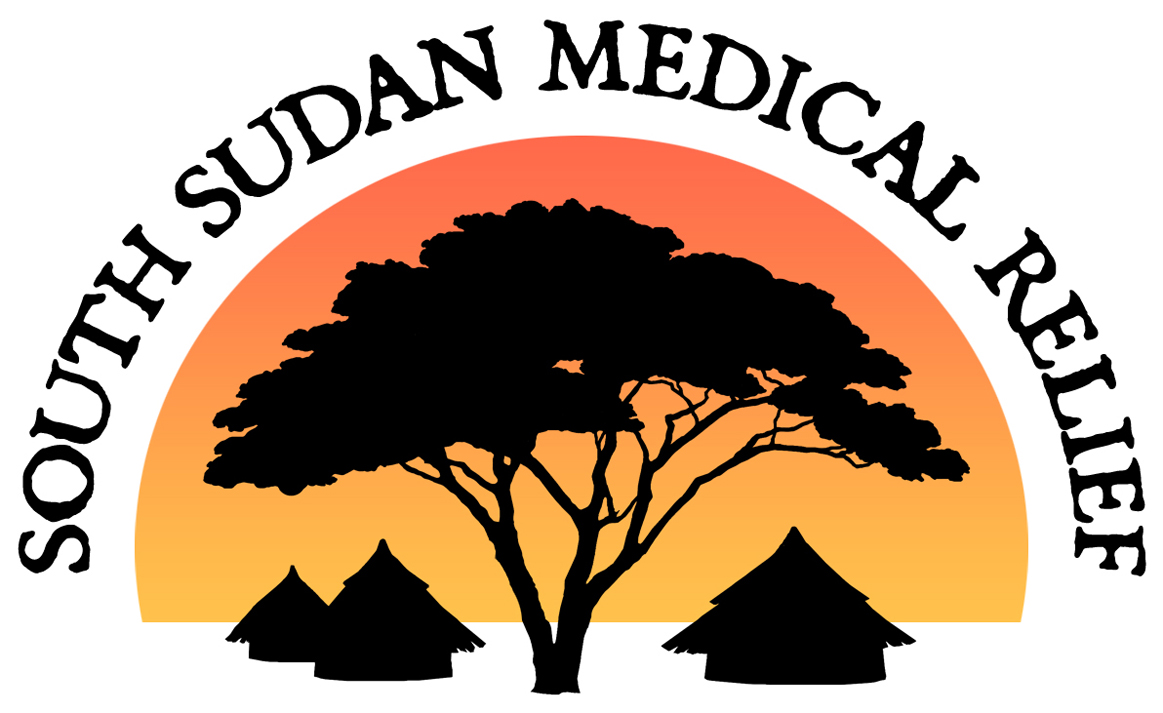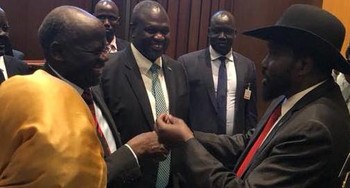JUBA, Sudan — Philip Geng Nyuol started fighting for independence with his hands.
He eventually graduated to a machete, then Molotov cocktails, then a gun.
“I crossed rivers full of crocodiles,” he said. “And slept in camps in Congo. And ate wild fruits in the bush.”
That was nearly 50 years ago — Mr. Nyuol was on the ground floor of southern Sudan’s independence struggle, before the rebels even had proper weapons. The memories come flooding back to him, bright but patchy, like sun streaming through the trees.
After decades of war and more than two million lives lost, southern Sudan has arrived at the moment it has been yearning for, a referendum on independence. Polls opened on Sunday just after 8 a.m. local time. All signs point to the people here voting overwhelmingly for secession, and the largest country on the continent will then begin the delicate process of splitting in two.
The United States government has played a pivotal role in bringing this moment to fruition, pushing the northern and southern Sudanese to sign a peace treaty in 2005 that set the referendum in motion. A proud, new African country is about to be born, but it will step onto the world stage with shaky legs. As it stands now, southern Sudan is one of the poorest places on earth.
Most people here scrape by on less than 75 cents a day. More than three-quarters of adults cannot read. Decades of civil war and marginalization have left the economy so crushed that just about everything is imported, down to eggs. According to Oxfam, a teenage girl has a higher chance of dying in childbirth than finishing elementary school.
Tens of thousands have flocked back to take part in the referendum, and some analysts, possibly reinforcing stereotypes of Africa as always teetering on the edge, warn south Sudan could be the next Somalia, awash in violence. Already, aid agencies are ringing the alarm about a lack of food, water, health care and sanitation.
“We have an unfolding humanitarian crisis, layered on top of an existing and forsaken one,” said the International Rescue Committee, an American aid organization that works in Sudan.
But this is a land of shared sacrifice, and that may be a cohesive force that helps hold southern Sudan together. After all the years of guerrilla warfare and hardship, oppression and persecution at the hands of the Arabs who rule Sudan, people here are deeply invested in holding a peaceful referendum and building the world’s newest nation.
“We are underdeveloped, yes, but we will do it,” said Gideon Gatpan Thoar, the information minister of Unity State, near the north-south border.
United Nations officials here say something remarkable has already happened. In 2009, ethnic fighting swept the south, with several thousand people killed in military-grade attacks, fueled by longstanding ethnic rivalries and a sudden, suspicious increase in high-powered weaponry. Many southerners suspected that the government in Khartoum, Sudan’s capital, was instigating the violence, just as it had in the past when Khartoum fomented a civil war within a civil war.
But in the past six months, there has been almost no major ethnic violence. One of the last holdouts, a renegade general who had been leading a revolt deep in the bush, recently agreed to a cease-fire. “What we are seeing is a real effort for reconciliation,” said a United Nations official in Juba, who was not authorized to speak to the news media and spoke anonymously. “All eyes are on the referendum. They’re all trying to get along now.”
But the official added, “Everybody knows these issues will come up in the future.”
Many northern Sudanese who work in the south are now fleeing. Stocks of goods are going down; prices are going up. People are still talking about what-ifs and the possibility of war, because even after the referendum, some very thorny issues need to be carefully handled before the south can peacefully break off. (The actual declaration of independence is scheduled for July.).
The south produces around 75 percent of Sudan’s oil, but it is landlocked, so some arrangement will have to be struck for southern oil to keep flowing through the pipeline in the north. The border will also have to be demarcated, including the tinderbox Abyei area, where Arab nomads historically have crossed back and forth. Billions of dollars of debt will have to be shared.
But most southerners are not thinking of technicalities. This is not simply a political moment, a time for a new line on the map or a new seat at the United Nations.
“This is a dream,” Mr. Nyuol said, “a dream we always hoped would come true, even if it took one thousand years.”
All over the streets of Juba, the capital of the south, brightly colored banners flaunt images of a single open hand, the ballot symbol that stands for secession. In towns across the south, loudspeakers blast messages of freedom. And salvation.
“We are going, we are going, we are going to the promised land,” sang a preacher in Yei, about 100 miles southwest of Juba.
The south is filled with people who have paid for this referendum with their own blood. Amputees hobble down the street in Juba with barely a glance up at the new ministries that their lost limbs helped bring to reality.
Veterans are everywhere, reflective of a society in which men, women and children were all mobilized to fight for independence.
Rose Hawa Simon, a copper-skinned woman with a million-dollar smile, never thought she would see this day, or even that she would be alive right now. She was one of the few female tank drivers for the southern rebels, and in March 1997 her tank was hit and she was shot twice fleeing the flaming wreckage. She does not question the sacrifice.
“Our people were suffering, our people were killed,” she said. “I said: ‘Let me join. Let me go.’ I started training on that tank, because my heart was broken.”
Alex Taban is another former bush fighter. His son, Jackson, followed in his footsteps and joined the rebellion. Jackson was killed in 1997 and buried on the battlefield. As the referendum approaches, Mr. Taban said, “The thoughts are there.”
The British colonizers planted a political minefield in the 1920s when they drew a line across the bottom third of Sudan and declared that northern and southern Sudanese should remain separate. Part of the reason was to check the spread of Islam. To this day, the upper part of Sudan is mainly Muslim and controlled by Arabs; the lower third is mostly animist and Christian, linguistically and culturally more in tune with Kenya, Uganda and central Africa.
A group of southern soldiers mutinied in 1955, a year before Sudan was granted independence. The civil war had begun.
By 1958, Mr. Nyuol, who is in his 70s (though he is not sure of his exact age), was organizing protests at his high school.
“Even then, we could tell what was happening,” he said. “They wanted to Islamize us. They were building mosques all over the place. They wanted us to change our names.”
He went to the forest in 1963. He laid ambushes. He firebombed the cars of Arabs. In the 1980s, after working as a high school math teacher, he ran underground cells to send food and matériel into the bush.
He planned to show up at the polls at dawn on Sunday, even though voting will continue for one week to allow people in far-flung areas to cast their ballots. He will vote for the open hand, for secession, he said.
“We have waited for this, we have fought for it,” he said.
And when the voting is over, he will return to his work building an archive of old pictures of his comrades who died in the 1960s.

















